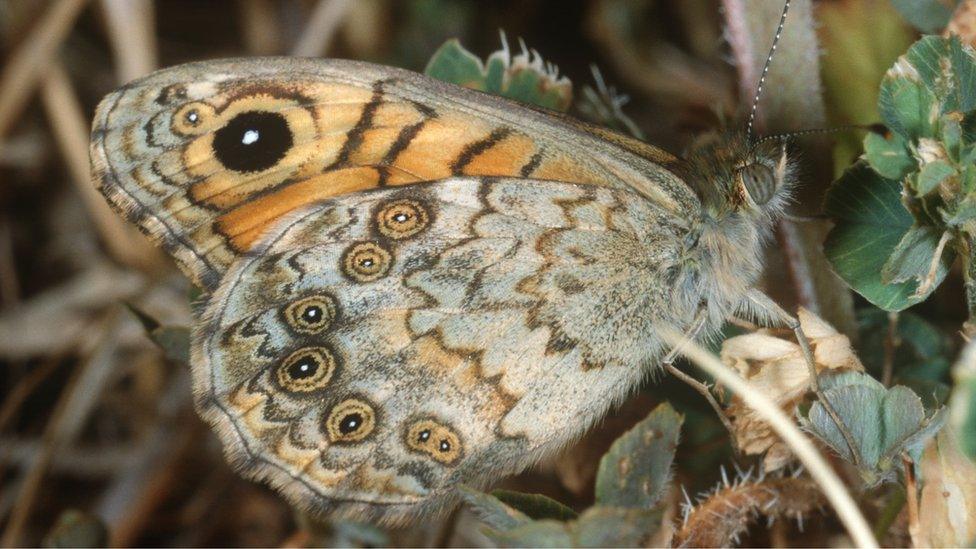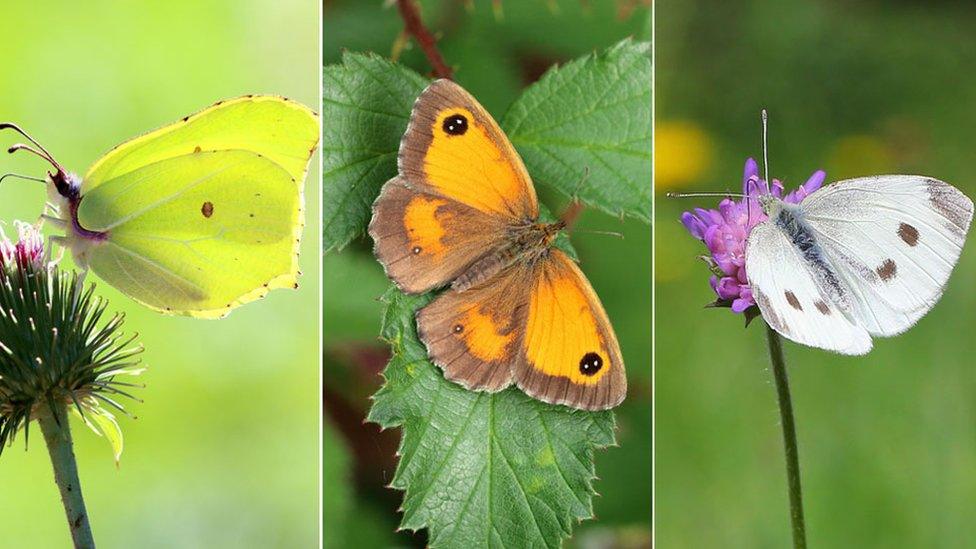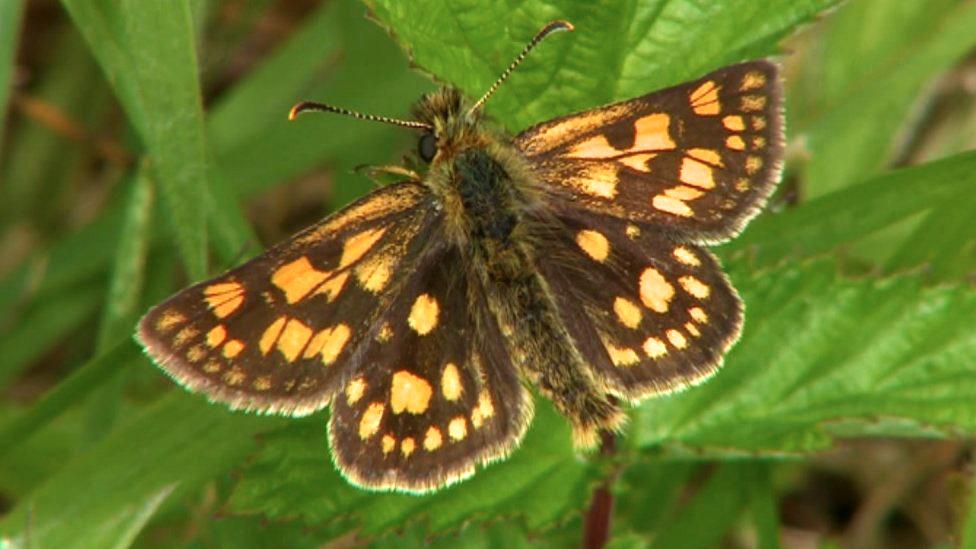Rare butterflies thrive at Derbyshire's Hoe Grange Quarry
- Published

Wall butterfly numbers have been in steep decline over the past few decades
A rare breed of butterfly is thriving at a former limestone quarry that has become a nature haven, wildlife experts have said.
Hoe Grange Quarry in Derbyshire was last mined in 1990 and is currently managed by Derbyshire Wildlife Trust.
Earlier this year, the company that owns the site relinquished its permit for future extraction operations.
Now it is a popular spot for the Wall butterfly, whose numbers have declined by 87% over the past 40 years.
The breed is named after its habit of basking on walls, rocks and stony places.
Butterfly Conservation lists its current status, external as "widespread but rapidly declining".

More than two dozen types of butterfly have been observed at Hoe Grange Quarry
Ken Orpe, Derbyshire butterfly recorder for Butterfly Conservation, said: "I've been monitoring the Wall butterfly at Hoe Grange Quarry for the last nine years and I can confidently say this is now the best place in the county to see this rare butterfly.
"The Wall is really struggling nationally and has completely disappeared from most of central southern England, so it's really special to have it here in such high numbers.
"This could be the butterfly's best year yet."
In April, the quarry's owner Longcliffe helped to secure the long-term future of the butterfly haven by relinquishing without compensation its permit to mine there.
Managing director Viv Russell said: "Our former limestone quarry has been transformed into a unique butterfly haven, demonstrating one of the largest butterfly colonies in the Peak District."
"We are delighted to continue to support the site as a nature reserve."
Nature fans have been invited to help count butterfly numbers at an open day at the quarry on Sunday.
It forms part of Butterfly Conservation's nationwide Big Butterfly Count which will look to establish whether reports of a mass influx of painted lady butterflies to the UK are true.

Follow BBC East Midlands on Facebook, external, Twitter, external, or Instagram, external. Send your story ideas to eastmidsnews@bbc.co.uk, external.
- Published19 July 2019

- Published28 June 2019
